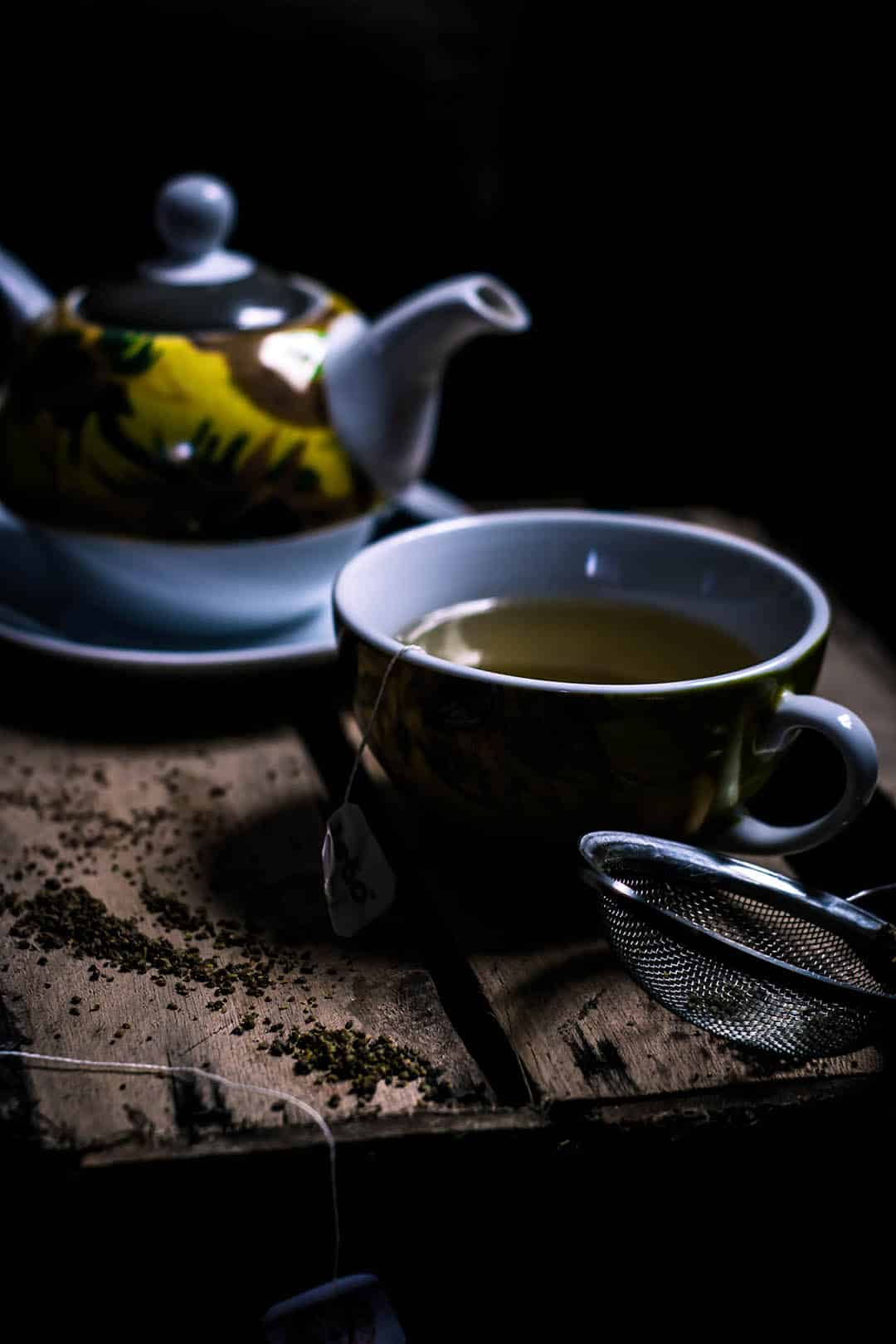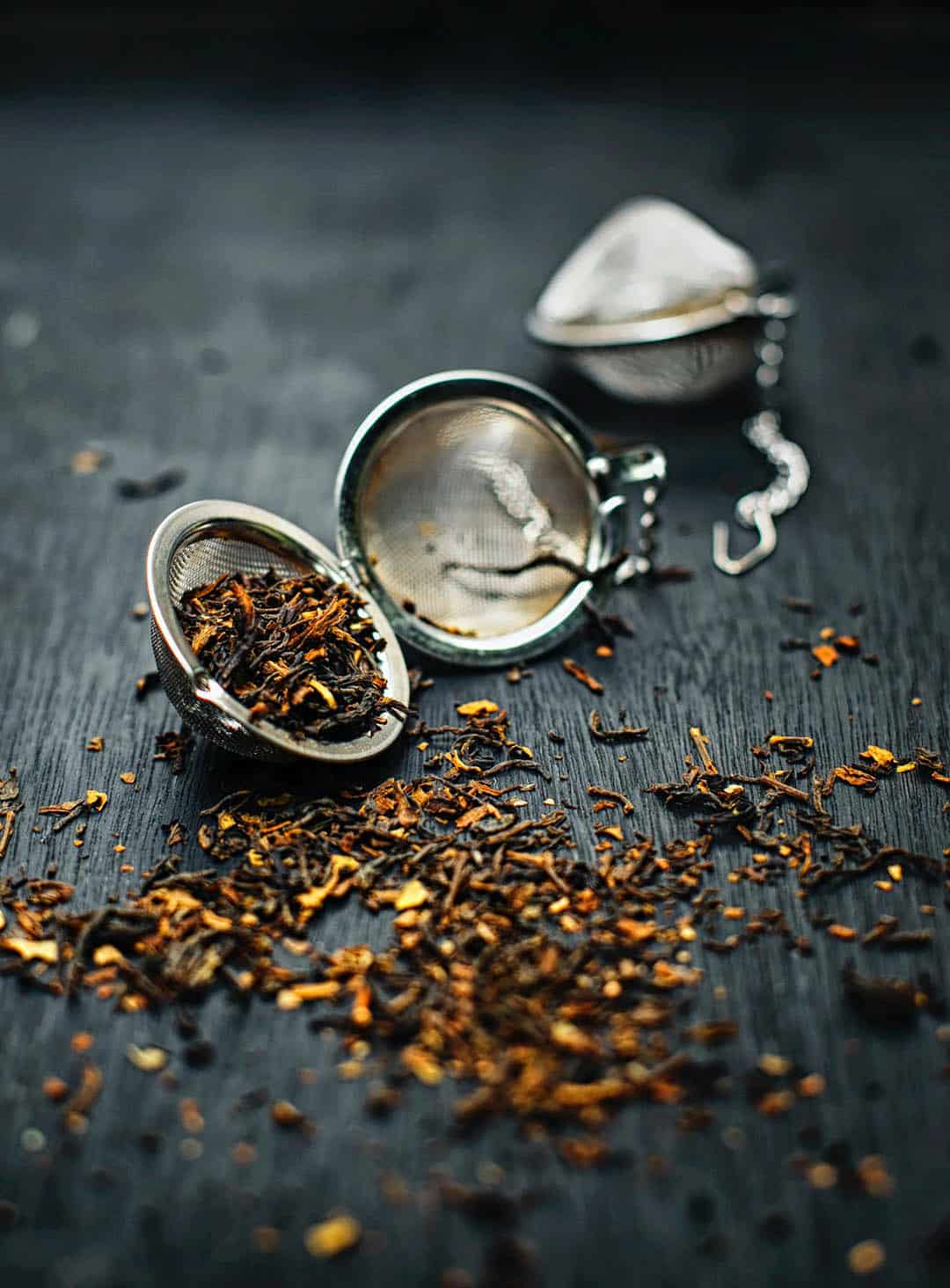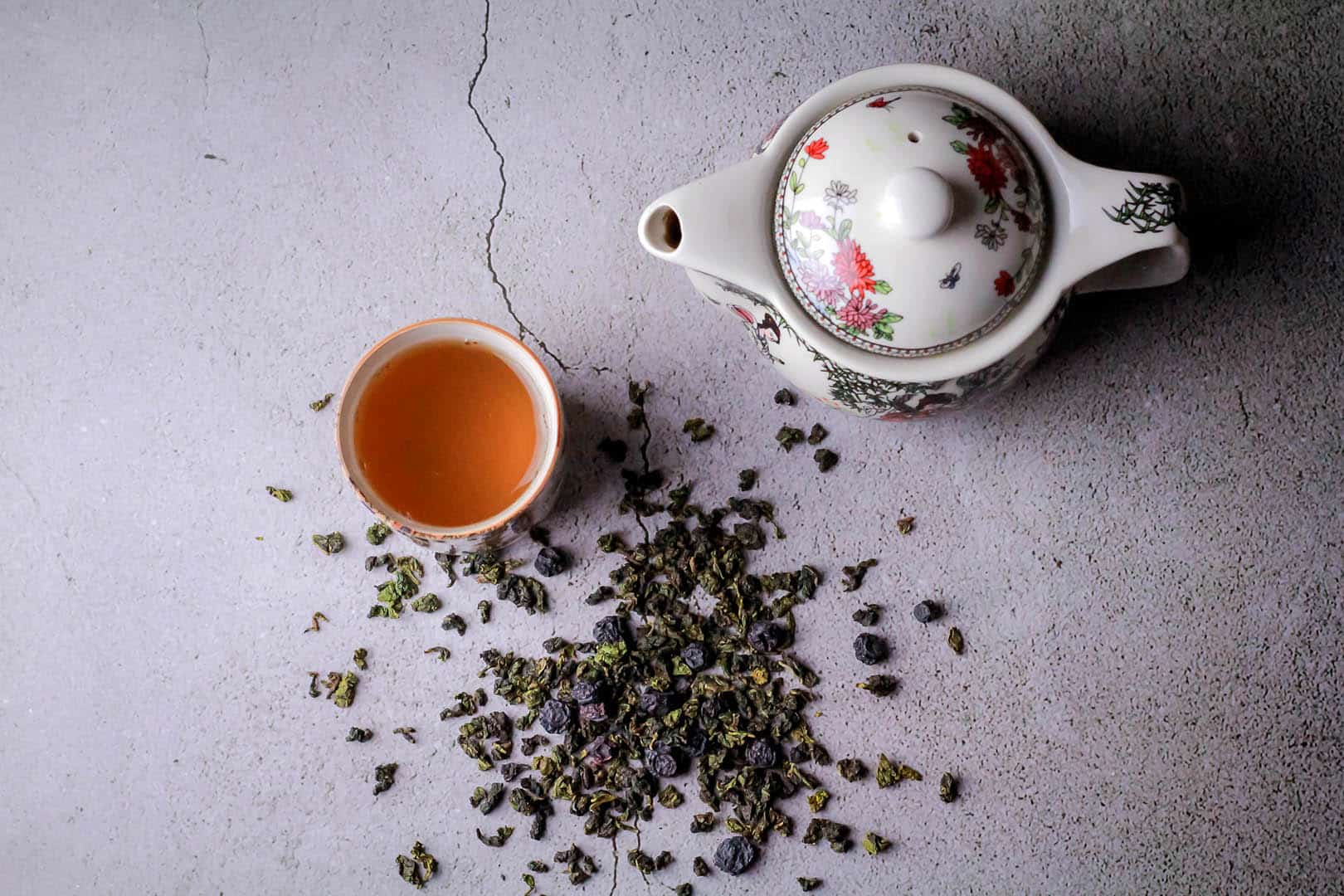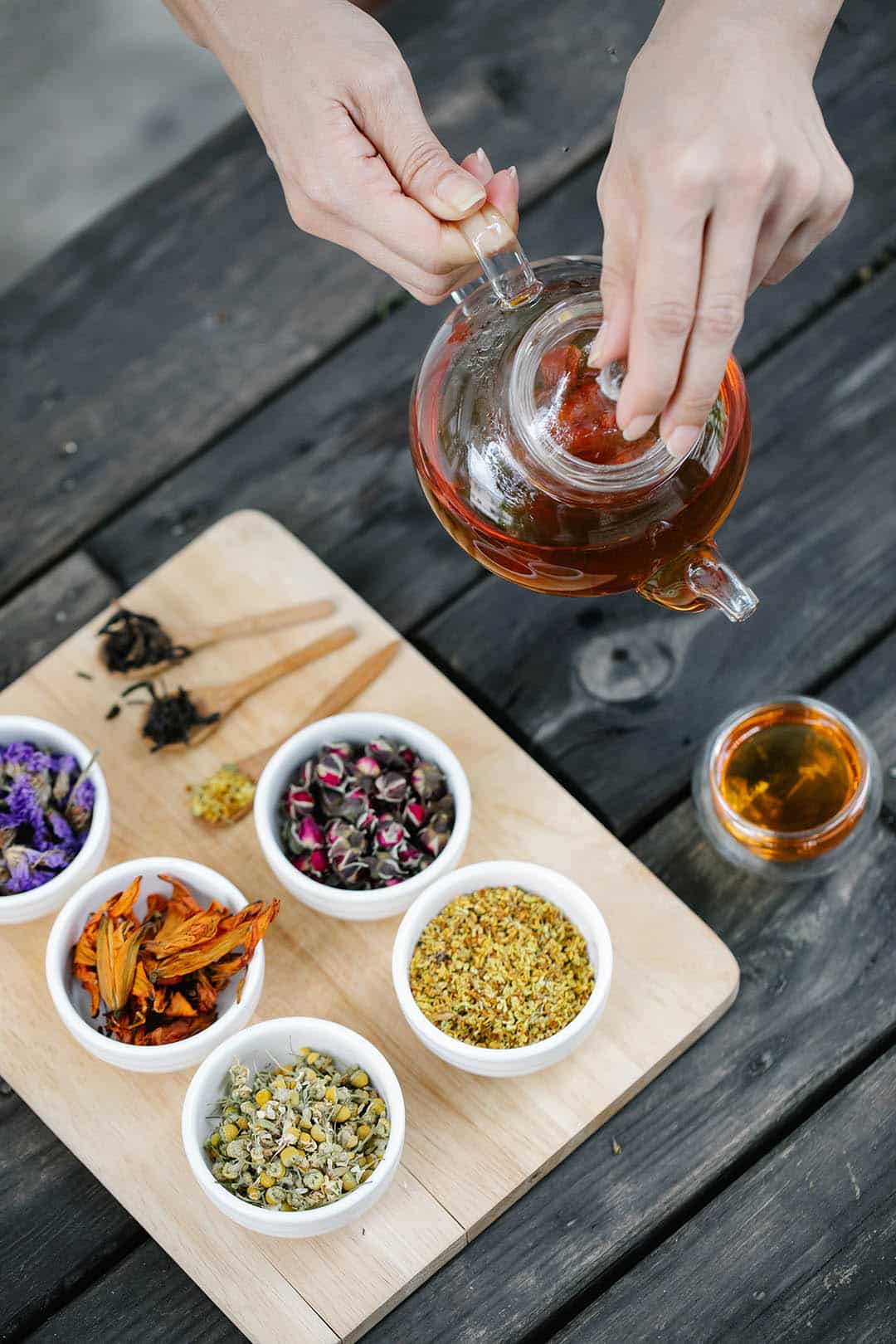Tea has been a staple drink in many cultures for thousands of years… and for good reason! It is hydrating, comes in a wide variety of types, flavors, blends, and can benefit your body. Teas are full of nutrients and important minerals for your body such as flavonoids, catechins, polyphenols, potassium, phosphorous, magnesium, copper, zinc, calcium, and fluoride – among others. Of course simply adding tea to your diet will not help very much without other lifestyle choices or changes such as an overall healthy diet full of lean meats, whole grains, fruits, and veggies. Though studies have shown that coupled with an overall healthy lifestyle drinking tea can help reduce inflammation, boost your immune system, and lower your risk of diabetes, cancer, stroke, or heart disease.
Let’s break down a few of the most popular varieties and why experts say they are a great idea to add to your day.
Black Tea
Black tea is made from the leaves of Camellia sinensis plant native to China and India. The leaves are dried then fermented, which gives the tea its distinctive darker richer color and flavor. Black tea also contains quite a bit of caffeine on top of beneficial nutrients that can help combat inflammation. One fun fact about black tea – you don’t even have to drink it in order to benefit from it. If the tea is steamed, cooled, then pressed on to a minor scrape, cut, bruise, minor rash, or other skin condition (like poison ivy) – it can help relieve pain and reduce swelling/inflammation at the site.
Green Tea
Green tea originates in China and is exceptionally high in beneficial nutrients which can help boost your heart health by lowering bad cholesterol, your risk of blood clots, blood pressure, triglycerides, while helping lower your risk of liver, breast, prostate, and colon cancers.
Herbal Teas
Herbal teas are blends of tea that include a variety of tea, herbs, spices, fruits, or other plants. They do not typically contain caffeine which is why they are usually known for their calming qualities. Popular varieties of herbal teas include:
- Chamomile tea which can help reduce menstrual pain, cramps, muscle spasms, as well as improve relaxation, sleep, and reduce stress.
- Ginger tea which can help fight morning sickness, chronic indigestion, and help relive arthritis pain.
- Hibiscus tea which can help lower blood pressure, improve kidney function, and lower your risk of kidney stones.
- Peppermint tea which can help reduce the pain from tension headaches or migraines, sooth an upset stomach, help with motion sickness, and relieve constipation.
Oolong Tea
Oolong tea is a traditional Chinese tea also made from the Camellia sinensis plant native to China and India. The tea is high in beneficial nutrients which can help lower inflammation, reduce your risk of type 2 diabetes, and prevent the growth of certain types of cancer. It also contains the amino acid, l-theanine, which can help reduce anxiety and increase alertness. Recent studies have found that it may also help prevent cognitive diseases such as Alzheimer’s and Parkinson’s.
White Tea
White tea comes from the Camellia sinensis plant native to China and India. It is low in caffeine and seems to be the most effective of the tea varieties at lowering a person’s risk of cancer due to the high level of natural antioxidants found in the leaves. White teas are also a good source of natural fluoride, catechins, and tannins – all of which can help strengthen your teeth, make them more resistant to sugar or acid, and fight plaque.
Ok, wait – how are most of these teas from the same plant?
As you most likely noticed, quite a few of the teas on this list come from the same plant – Camellia sinensis native to China and India. The difference is how much oxidization each of the different tea varieties is allowed after the tea is picked.
- Green tea is not allowed to oxidize very much, if any at all.
- Black tea is allowed to oxidize until it turns black.
- Oolong tea is partially oxidized – basically in the middle of green and black.
Are there any teas that should be avoided?
If you are looking to add tea to your diet for health reasons there are a few varieties that you should stay away from. Teas such as:
- Trendy bubble teas/drinks – these are mostly sugar and have little to no nutritional value.
- Fancy tea drinks or tea lattes – same as the bubble teas, these are mostly sugar even if they claim to contain healthy teas such as macha.
- Detox teas or cleanse teas – these are just fad diet aids that have no nutritional value, could potentially be harmful for your body, and are usually laced with laxatives.
One warning on herbal teas – they contain more than just tea leaves (as we stated above) and may have fruits, herbs, spices, flowers, and more that some people may be allergic to. Some ingredients can also interfere with prescription medication. Always read labels carefully and consult your doctor if you have any questions or concerns.
As you can see, some tea types offer more health advantages than others but adding any of them can have a lasting impact on your body’s health. Drink up!
What are your favorite teas?
Let us know in the comments below!









